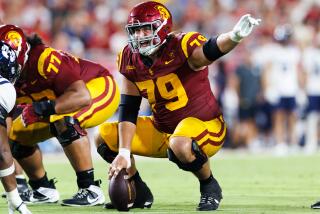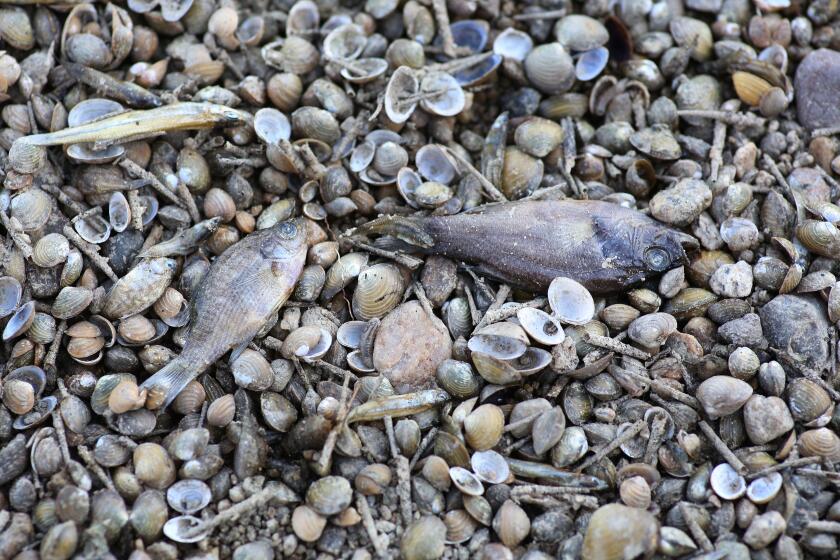New breed of owner is just what horse racing needs
There are at least two ways to ponder the vision of a Cal sophomore named Jess Jackson, playing football in the late 1940s for the semipro San Francisco Seagulls against the Petaluma Leghorns.
Without a helmet.
One is the obvious: He is how he is today because of the hits he took back then.
Or the other: Anybody who would do that is stubborn, tough, hard-charging and unstoppable.
With the benefit of hindsight, we can assume the latter.
Jackson is 78 now, ranked somewhere around No. 500 by Forbes magazine in its list of the richest people in the world. He has been a successful San Francisco lawyer and an even more successful vintner. With his first wife, Jane Kendall, he founded Kendall-Jackson Winery 26 years ago. Most likely, you’ve either sipped it or heard of it.
Suffice to say, he and his will never want for anything.
Also suffice to say, most billionaires in his position, at his age, would have found a comfortable rocking chair next to a big fireplace to sit and count their money.
Instead, in his early 70s, Jackson got his hands off the wine business little by little in a sort of slow retirement that seldom goes easily with hands-on people.
“He was driving all the people around the business crazy,” says Barbara Banke, his wife.
So, what does a guy do who loved to play rugby as well as football, who as a high school quarterback in San Francisco played against Ollie Matson, who not only loved the physical action, but the visual as well? What does a guy do who can recall the “wonderful charm of the Bing Crosby days at Del Mar racetrack?” Or who loves to talk about seeing Seabiscuit and Silky Sullivan?
What indeed?
He goes into horse racing. He buys horses, buys farms to breed them and raise them. He gets one of the best trainers in the world, Steve Asmussen, to prepare them so he can race them. He spends gobs of money, knowing full well it may be years before he gets any back.
And then, if he is Jess Jackson, he hits the jackpot.
Today is the start of Breeders’ Cup week, leading to Saturday’s Breeders’ Cup Classic, where all eyes will be on Jackson’s jackpot, the horse named Curlin, of which he owns 80%. When Curlin leaves the starting gate at Santa Anita, along with 13 others all seeking the winner’s portion of the $5-million purse, racing may be in for an upheaval.
Jackson’s Curlin is the star, and a victory Saturday would make him horse of the year for the second straight year, as well as a repeat Breeders’ Cup Classic champ. Both are huge deals in racing, and to the owner of that excellence goes both the right, and the leverage, to be heard.
That Jackson is still racing Curlin, the 2007 Preakness winner, at age 4 is telling. More so is that, even with Curlin’s breeding value already through the roof, Jackson is not necessarily looking at this race as the last one for Curlin.
“I am pursuing a vision I have for him,” Jackson says.
As a relative newcomer to the thoroughbred world -- he started his buying and breeding operation in 2003 -- he has the chance to move the needle a bit in an industry that has been driving 55 mph for 55 years.
He talks about running Curlin as a 5-year-old so he could show racing that it can be done, that stars such as Curlin, with proper care and handling, can be extended in time as a gesture to a racing public that pays the bills and has always shown an appetite for great older horses.
Jackson talks about starting a racing league, with maybe 150 older horses, with a commissioner who would actually have some power over that league, and with a Triple Crown-type series that offered similar money, similar exposure and a less-dangerous time frame between races.
His theory is that, once the value is seen of keeping horses around, the industry’s biggest problem will be reversed.
“Isn’t it enough that we have had Barbaro, and Eight Belles?” he says. “When do we stop racing to breed when we should be breeding to race?”
Certainly, Jackson is not alone in this. After these highly publicized breakdowns in recent Triple Crown races, the Jockey Club, the sport’s most powerful entity, has been hard at work on plans and strategy.
But it appears Jackson isn’t enamored of the current power structure of his sport.
“The entire industry is controlled by a bunch of breeders in central Kentucky,” he says.
The likelihood is that Curlin will not run as a 5-year-old, even though Jackson always uses the phrase “I’m tempted” when asked. He is torn because he also sees the value of introducing Curlin’s genes into the thoroughbred pool as soon as possible.
It also could happen that Curlin throws in a clinker in the Breeders’ Cup and his value as a future beacon for the sport drops. But the horse has already done enough to give Jackson a pulpit, and, as it did in the 1990s with the late Bob Lewis and his phenomenal success, the establishment is watching and listening.
Lewis sent two horses in three years to the Belmont with a shot at a Triple Crown. Jackson has a horse of the year and a Breeders’ Cup Classic winner, with a great chance of having the words “two-time” put in front of both designations. He also has the top money-winning horse in the history of North American racing in Curlin’s current $10-million-plus career.
Add to that the fact that the most expensive purchase at the September yearling sale in Lexington, a filly sired by A.P. Indy with the broodmare Chimichurri, was from Stonestreet Stables in Kentucky, owned and operated by Jackson. The filly brought $3.1 million, from Sheikh Muhammad, ruler of Dubai.
So it has been a good year for the man who proudly calls himself a “14th-generation American,” who was born in downtown L.A., a short drive from Santa Anita’s track, and who not only has a passion for the business success brought by Curlin, but a passion for Curlin.
“He knows when I’m there,” Jackson says. “I could lay down and sleep right under him in the barn, and he’d never step on me.”
To know what it is dealing with, racing needs only to know Jackson’s answer to the question of why he would play football without a helmet.
“For the love of the game,” he says, “and a beer.”
--
Bill Dwyre can be reached at bill.dwyre@latimes.com. To read previous columns, go to latimes.com/dwyre.
More to Read
Go beyond the scoreboard
Get the latest on L.A.'s teams in the daily Sports Report newsletter.
You may occasionally receive promotional content from the Los Angeles Times.











